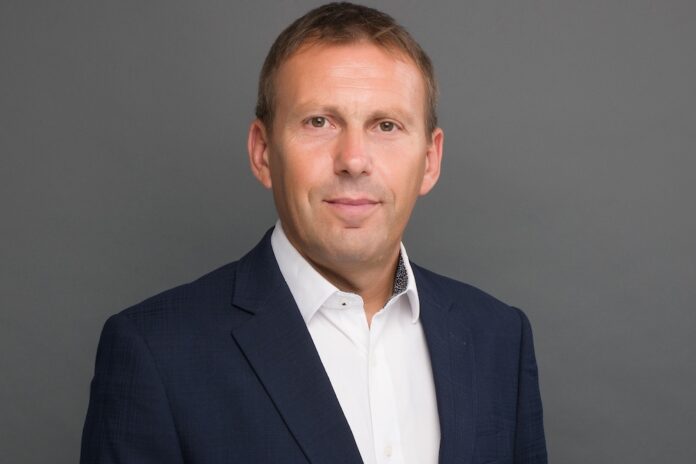The country’s importance grows for attracting international traffic and potentially, hyperscalers
Hungary and the Western Balkans-focused telco 4iG said it will build a data centre ecosystem and deepen its terrestrial fibre footprint in Albania following its deal with Telecom Egypt to deliver a high-capacity subsea cable between the two countries.
Deputy COO of carrier services and strategic infrastructure projects at Invitech (part of 4iG Group), Albert Kis (above), told Mobile Europe the new European cable entry point will provide a different transit passage compared to the already existing Mediterranean routes.
The deal means the Budapest-based Group becomes the latest new player the market for intercontinental capacity services between Europe and Asia, and Europe and East Africa. The two companies want to gain a significant share of the huge and rapidly growing market of data traffic between Europe and Asia, and between Europe and East Africa.
Kis said 4iG’s One Albania, which formed in January, has big plans for the country. “4iG Group plans to set up a data centre ecosystem in Albania, assuring multiple and diverse domestic, regional and international connectivity and attracting content,” he said. “Telecom Egypt’s “WeConnect” product will guarantee the access to this new route (sea cable and route extension) from all other landing stations and sea cables in Egypt.
Telecom Egypt launched its WeConnect platform last month, which provides a single platform for click-to-order cross-connectivity between the 14 subsea cable systems landing in Egypt’s ten cable stations, linked via the ten terrestrial routes spanning the country.
Prominent gateway
Kis said Albania’s is strategic location as one of the prominent gateways and entry points to Eastern Europe – backed by secured cross-border terrestrial infrastructure – means it will facilitate onward connectivity and access to various key destinations.
“These two networks can fully support each other,” he said. “4iG owns very robust terrestrial fibre network in Albania that will be used for [data centre] connectivity and for international land route extensions. Future development, extensions of this network will be done considering both domestic and international transit needs.”
The plan is to extend the network to Frankfurt although Kis wouldn’t confirm what mix the solution would have between self-build and wholesale network providers like T-Systems. “4iG has assets and extensive experience in CEE region transit business,” he said. “[The] land route extension will be done using primarily the assets of the group and using the long term very good partnerships that we have in place.”
“We plan to provide connectivity from Albania to all major cities in the region and to Frankfurt on capacity (wavelengths) and [at a] fibre level,” he added.
Earlier this year, 4iG said it had started a review of the potential consolidation and outsourcing of its domestic and international operations as well as the fixed infrastructure, and Hungarian and Western Balkan passive mobile infrastructure owned by the Group in the first half of 2023. However, Kis remained tight-lipped about the progress on this to date.



